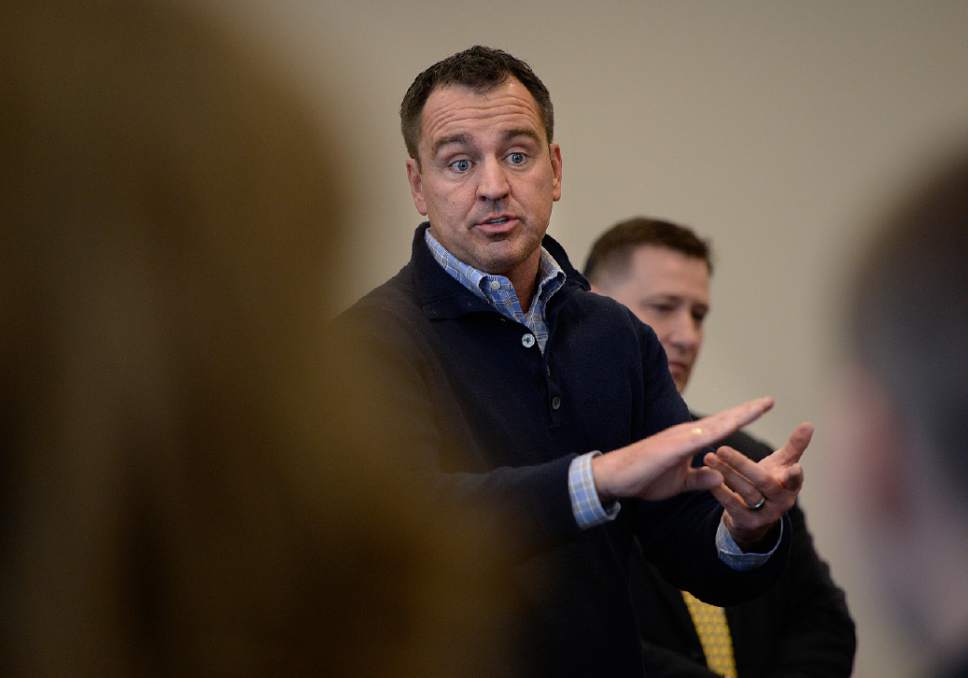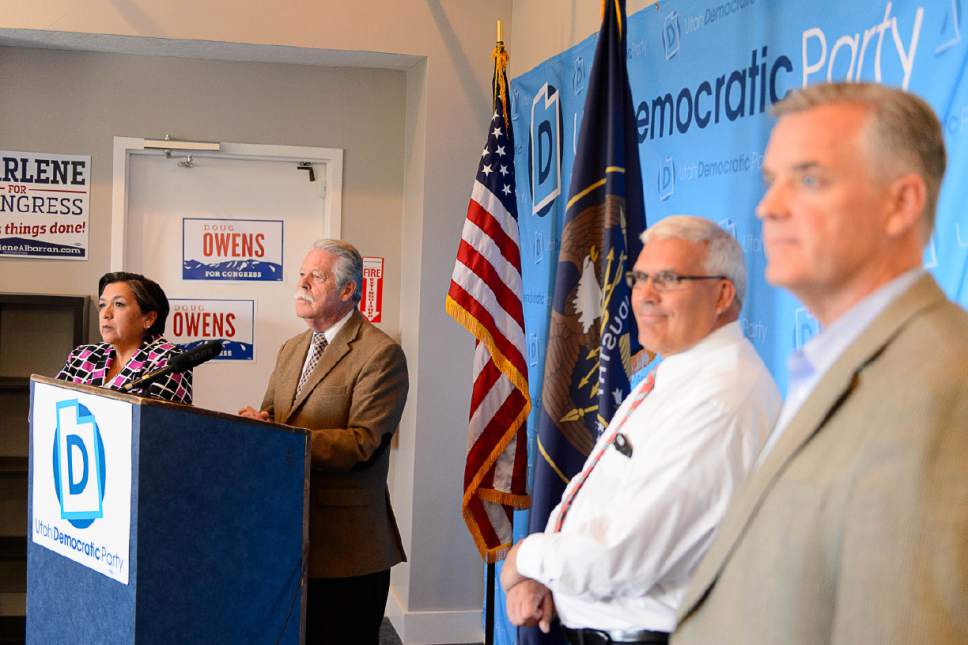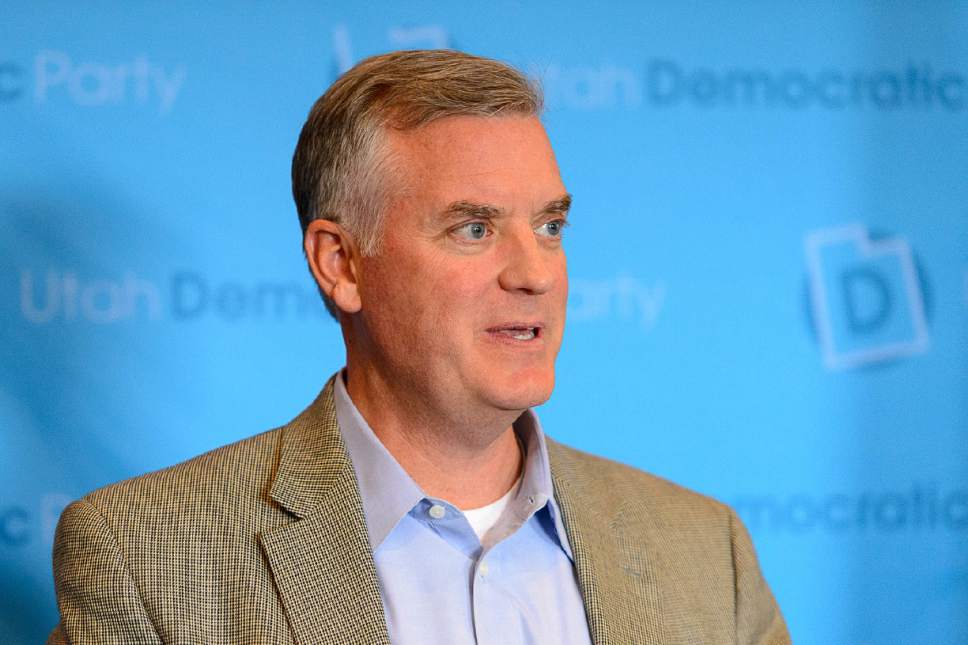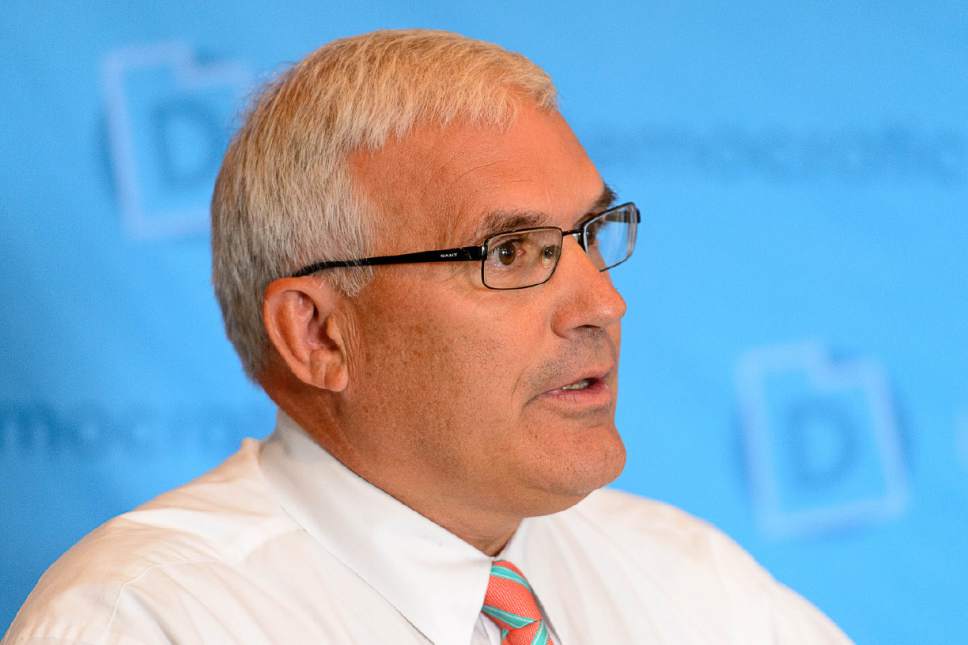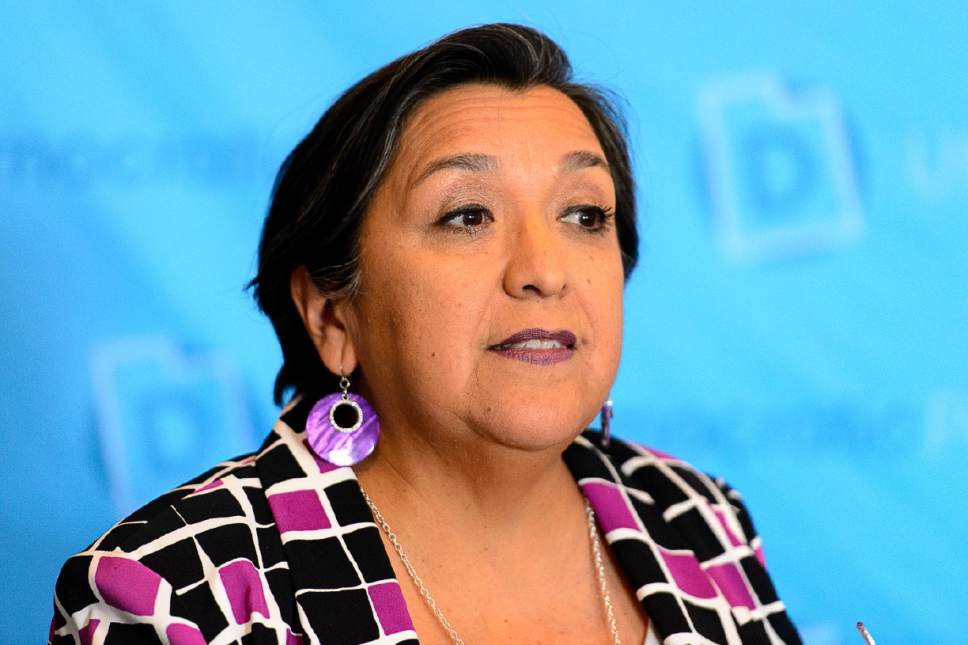This is an archived article that was published on sltrib.com in 2016, and information in the article may be outdated. It is provided only for personal research purposes and may not be reprinted.
Utah Democrats teed off on Republican lawmakers for refusing to expand Medicaid, leaving tens of thousands of low-income Utahns without health insurance, on the sixth anniversary of enactment of a key piece of the Affordable Care Act, or Obamacare.
"The Affordable Care Act is probably one of the best things to happen to America and to the citizens of Utah," said Sen. Gene Davis, D-Salt Lake City.
But Republican leaders said that not only has the Affordable Care Act been a failure, they were prescient in refusing to expand Medicaid, because now states are on the hook for costs they cannot afford.
"I think the jury is in and the verdict is that it is not affordable, its not accessible and the federal government has proven what we were saying back when we threw up our objections — that they very well may not, and now have not, lived up to their obligations to fund the program," said House Speaker Greg Hughes.
Republican lawmakers and Gov. Gary Herbert have refused to expand Medicaid coverage in the state and GOP lawmakers beat back a proposal by Herbert and later a plan backed by legislative leaders to use hundreds of millions of federal money to subsidize coverage for an estimated 133,000 Utahns.
Democrats challenged their Republican colleagues on the sixth anniversary of enactment of the Affordable Care Acts Patient's Bill of Rights, which included numerous protections against losing health insurance.
Rep. Rebecca Chavez-Houck, D-SaltLake City, said 164,000 uninsured Utahns have been able to get health coverage thanks to the Affordable Care Act, but the state could have done much more if it had expanded Medicaid.
States that expanded Medicaid saw the percentage of uninsured drop by 3.4 percent; Utah's has dropped by less than half that. Without that coverage, some have not received health care and some of those have died.
"There's so much more we could've done and those are the numbers," said Chavez-Houck, "but at the end of the day, what I reflect on, is the people who are no longer here because of the decision we refused to make because we lacked the political will."
Davis said that Utah taxpayers have paid into the health-care fund, but not received the benefits they were supposed to. "The one thing we've done is left on the table — this is money that could be in Utah's economy — nearly a billion dollars," Davis said. "We have failed in the state of Utah to address the needs of the most vulnerable citizens that we have."
Hughes counters that one company that was participating in Utah's health-care exchange, Arches, has gone bankrupt and another, Humana, has pulled out of the market. That has left three insurers statewide and only one, SelectHealth, in rural Utah, where rates are going up by 30 percent.
Lawmakers were told Tuesday that Arches, which insured 66,000 people, has left the state trying to sort out an estimated $34 million in unpaid claims to hospitals and providers. Humana had a smaller share of the market and University of Utah Health Plans has offered to pick up its 6,000 customers.
Hughes said that the state took a step toward addressing the uninsured problem with a bill that will essentially only target homeless individuals with mental-health issues, and inmates released from jail — spending $40 million to cover fewer than 16,000 people, with more recent estimates putting it at about 10,000.
That program is not implemented because the U.S. Department of Health and Human Services has not approved Utah's Medicaid-waiver application.
Paul Schulte, who is running against Rep. Jim Dunnigan, R-Taylorsville — the sponsor of the scaled-back health coverage — said it was irresponsible for Dunnigan to sponsor a bill that would spend $40 million to cover so few Utahns, when more than 100,000 could have been covered under Medicaid expansion for the same price.
"We had the resources to cover 100,000 Utahns for almost the same price tag," said Schulte. "This bill was a lack of leadership and, more importantly, compassion for our fellow Utahns. This was fiscally irresponsible and morally reprehensible."
A call to Dunnigan for response was returned by Hughes, who said his comments about the failure of the ACA represented the position of the House GOP Caucus.
gehrke@sltrib.com Twitter: @RobertGehrke


